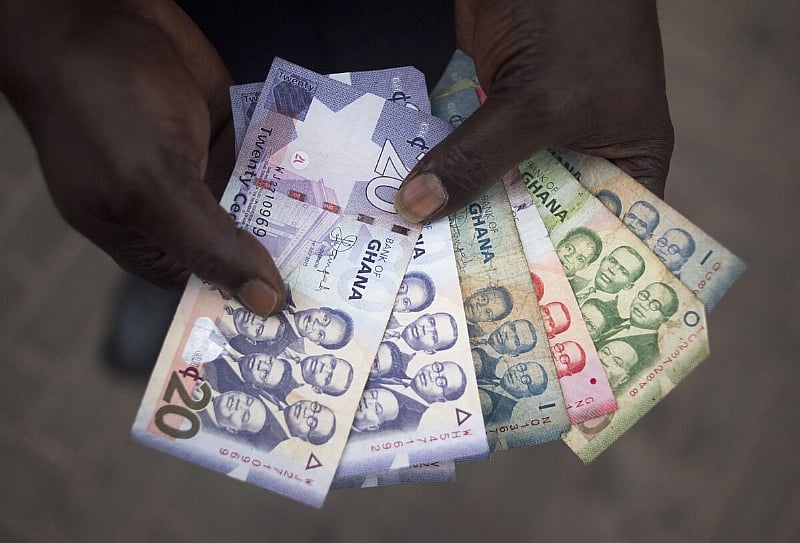The Ghanaian cedi experienced a slight depreciation against the US dollar on Friday, January 10, 2025. The buying rate weakened by 2 pesewas to GHS14.67, while the selling rate fell by 7 pesewas to GHS15.20, based on average figures collected at 10:00 am. This continues a trend of volatility for the cedi, which has faced pressures in recent times. This information is sourced from Cedirates.com, a reliable platform for tracking currency fluctuations and fuel prices in Ghana. These rates represent the general market trend, with variations expected across different financial institutions.
Forex bureaus, which cater to a significant portion of the population for currency exchange, offered slightly less favorable rates. The cedi’s buying rate at these establishments stood at GHS15.30, while the selling rate reached GHS15.80. This difference highlights the varying exchange rates available depending on the chosen financial intermediary. Forex bureaus often reflect market dynamics more quickly and can adjust their rates based on real-time supply and demand. This makes them a readily accessible but sometimes more expensive option for currency exchange.
Interbank rates, reflecting transactions between banks, painted a slightly different picture. The cedi traded at GHS14.79 for buying and GHS14.81 for selling against the US dollar. This relatively narrower spread between buying and selling rates is characteristic of interbank transactions, which involve larger volumes and less overhead compared to retail transactions at forex bureaus. The interbank market plays a crucial role in setting benchmark rates and influencing the overall foreign exchange landscape.
The cedi also traded against other major currencies. Against the British Pound Sterling, the average buying rate was GHS17.99, and the selling rate was GHS18.66. For the Euro, the buying rate averaged GHS14.96, while the selling rate stood at GHS15.64. The Bank of Ghana’s interbank market quoted a selling rate of GHS18.21 for the Pound Sterling and GHS15.25 for the Euro. These figures provide a snapshot of the cedi’s performance against a basket of major international currencies, reflecting the broader dynamics of the foreign exchange market.
Remittance services like LemFi and Afriex offered competitive rates for sending money to Ghana. From the US, LemFi offered a rate of GHS14.65 per dollar, while Afriex provided a slightly more attractive rate of GHS13.77 per dollar. For remittances from the UK, both services presented relatively similar rates, with LemFi offering a buying rate of GHS18.14 and a selling rate of GHS17.21 for the British Pound, while Afriex did not provide specific pound rates for this day. These remittance platforms provide a vital link for Ghanaians living abroad to send money home, often offering more competitive exchange rates compared to traditional banking channels.
For Euro transactions on the prior Wednesday, Afriex offered a selling rate of GHS14.35 per euro, while LemFi provided a slightly less favorable rate of GHS15.20 per euro. For online subscriptions to services like Netflix, Spotify, and Apple Music, payments processed through Visa and Mastercard used an exchange rate of GHS15.84 per US dollar. This consistent rate for online transactions simplifies currency conversion for users of these international platforms, although it might not always reflect the most competitive market rate available. The information provided offers a comprehensive overview of the Ghanaian cedi’s performance against major international currencies on January 10, 2025, highlighting the different rates available through various channels, including banks, forex bureaus, remittance services, and online payment platforms.


